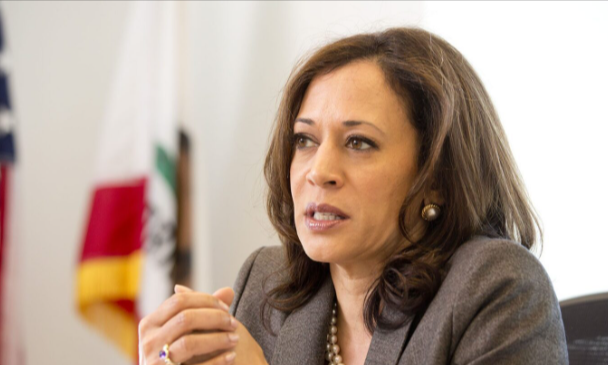Kamala Harris' Comments on Columbus Day Go Viral, Drawing Attention from Trump Campaign

The Trump campaign has brought renewed attention to comments made by Vice President Kamala Harris regarding her stance on replacing Columbus Day with Indigenous Peoples' Day.
In 2019, while on the presidential campaign trail, Harris openly supported the idea, stating, "count me in" when asked about endorsing the change.
FLASHBACK: A resurfaced 2019 video shows Vice President Harris backing the renaming of Columbus Day to Indigenous People's Day, with the Trump campaign accusing her of trying to "cancel American traditions." https://t.co/0aZSNjtCkX pic.twitter.com/cflbdZeyv3
— Fox News (@FoxNews) October 14, 2024
Later that year, when questioned about renaming Columbus Day, she affirmed her support by saying, "Sure. Yeah. We have to remember history."
“Would you support efforts on a federal level to change Columbus Day to Indigenous People’s Day?”
— TheBlaze (@theblaze) October 14, 2024
Kamala Harris: “Sure. Yeah. We have to remember history.” pic.twitter.com/SIkCRT9RmD
Following President Joe Biden's 2021 proclamation that recognized Indigenous Peoples' Day in conjunction with Columbus Day, Harris expanded on her views: “Since 1934, every October the United States has recognized the voyage of the European explorers who first landed on the shores of the Americas. But that is not the whole story. That has never been the whole story.”
Harris continued, asserting that “those explorers ushered in a wave of devastation for Tribal nations – perpetrating violence, stealing land, and spreading disease.”
“We must not shy away from this shameful past,” she added, “and we must shed light on it and do everything we can to address the impact of the past on Native communities today.”
Kamala Harris on Columbus Day:
— End Wokeness (@EndWokeness) October 14, 2024
"European explorers ushered in a wave of devastation, violence, stealing land, and widespread disease" pic.twitter.com/3XijDf5Ldo
Despite Harris' comments, Columbus Day remains a federally recognized holiday.
Responding to Harris' views, Trump campaign spokesperson Karoline Leavitt commented, “Kamala Harris is your stereotypical leftist. Not only does she want to raise taxes and defund the police — she also wants to cancel American traditions like Columbus Day. President Trump will make sure Christopher Columbus’ great legacy is honored and protect this holiday from radical leftists who want to erase our nation’s history like Kamala Harris.”
Harris seems to subscribe to a narrative that is widely discussed on many university campuses today, which frames Europeans as colonizers, thus portraying America as a product of colonization.
However, a broader view of history suggests that colonization has been a global phenomenon, evident across regions like the Middle East and Africa, depending on historical perspectives.
It’s believed that the first "natives" of North America likely crossed over a land bridge at the Bering Strait, while those in South America may have arrived by boat from the Pacific.
Does this mean the first tribe to settle in North America had ownership of the entire continent, making anyone who came after them thieves? This view is, of course, overly simplistic.
Certainly, many injustices were committed against those who had lived here for centuries before the arrival of Europeans. These wrongs persisted well into U.S. history, especially during westward expansion in the 1800s.
However, even before Europeans arrived, Indigenous populations were frequently in conflict with one another over land and resources.
The Founding Fathers created a nation rooted in Western Christian values, with a commitment to equality for all, regardless of ethnicity. In striving toward these ideals, the United States has arguably come closer to fulfilling this vision than most other nations.
Christopher Columbus and the explorers who followed paved the way for the United States to emerge as the most prosperous nation in history.
Harris appears to be influenced by a leftist interpretation of American history, which frames it as a continuous conflict between “oppressors” and “oppressed.”
This viewpoint was prominent during the Obama administration and continues under President Biden.
Instead of embracing that outlook, we should remain committed to the principles of the Declaration of Independence and resist the Marxist interpretation of history.